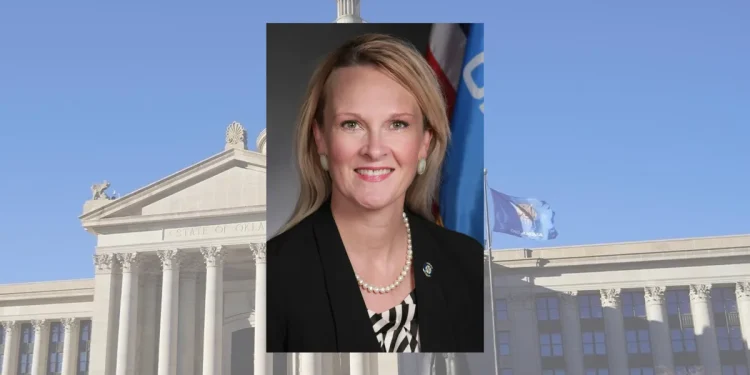In recent years, Oklahoma has been a leader in passing laws that prevent males from competing in women’s sports and banning sex-change surgeries for children.
Critics argued that these laws would drive people and businesses away from the state. However, a recent poll reveals that three out of four voters nationwide support the policies Oklahoma has implemented, suggesting that state lawmakers were reflecting the concerns of the public rather than alienating them.
In 2022, Oklahoma lawmakers made it illegal for males to participate in women’s sporting events.
In 2023, they went further, banning sex-change surgeries for children and prohibiting the administration of cross-sex hormones or puberty blockers to minors.
A survey of 1,000 registered voters, conducted online by Scott Rasmussen and RMG Research for the Napolitan News Service, found that 75 percent of voters nationwide oppose allowing “biological males who identify as women” to “participate in women’s sports events.”
Just 13 percent supported the idea of letting men compete in women’s sports.
This opposition has grown since February 2022, when 64 percent of voters opposed male participation in women’s sports.
The increasing resistance may be linked to growing awareness of the harm to women, highlighted by one case where a girl sustained severe injuries after competing against a male opponent.
A recent United Nations report, Violence against women and girls, its causes and consequences, pointed out that hundreds of female athletes have lost medals by competing against male opponents in women’s sports.
“Policies implemented by international federations and national governing bodies, along with national legislation in some countries, allow males who identify as women to compete in female sports categories. In other cases, this practice is not explicitly prohibited and is thus tolerated in practice,” the report stated.
“The replacement of the female sports category with a mixed-sex category has resulted in an increasing number of female athletes losing opportunities, including medals when competing against males. According to information received, by 30 March 2024, over 600 female athletes in more than 400 competitions have lost more than 890 medals in 29 different sports.”
The poll found that 68 percent of voters believe allowing biological males to compete in women’s sports denies women opportunities.
Similarly, 72 percent of voters believe it should be illegal to provide children under 18 with puberty blockers, drugs, or surgery to help them transition to another gender.
Only 18 percent believed it should be legal to perform sex-change surgeries on children.
Opposition to this practice has risen from 64 percent in June 2023.
State Rep. Toni Hasenbeck, an Elgin Republican and former teacher who authored both of these state laws, said her decision to push forward with these measures despite vocal opposition came from her varied experiences.
She said the fact that voters across the country now support Oklahoma’s policies shows lawmakers can trust their instincts.
“That was just something that was the right thing to do, and it didn’t seem controversial,” Hasenbeck said.
“And so the fact that we kind of led on that, it causes me to dig my heels in a little bit deeper on (other) stuff. If it’s something that I have thought about for 10 years before I got into office, maybe it’s something I need to stick to my guns and make sure that we get it done.”
The poll also found that 75 percent of voters oppose allowing biological males who identify as women to use women’s locker rooms, showers, and bathrooms, and 62 percent believe that men who identify as women should not be allowed to share shelters with biological women who are victims of sexual assault or domestic violence.
Furthermore, 68 percent of voters believe lessons about exploring or changing gender identity should not be taught in public schools, and 73 percent say school officials should be required to notify parents if a child wants to change their gender, name, or pronouns.
The survey, conducted online by Scott Rasmussen on November 13, 2024, had a sample of 1,000 registered voters, with fieldwork carried out by RMG Research, Inc.


